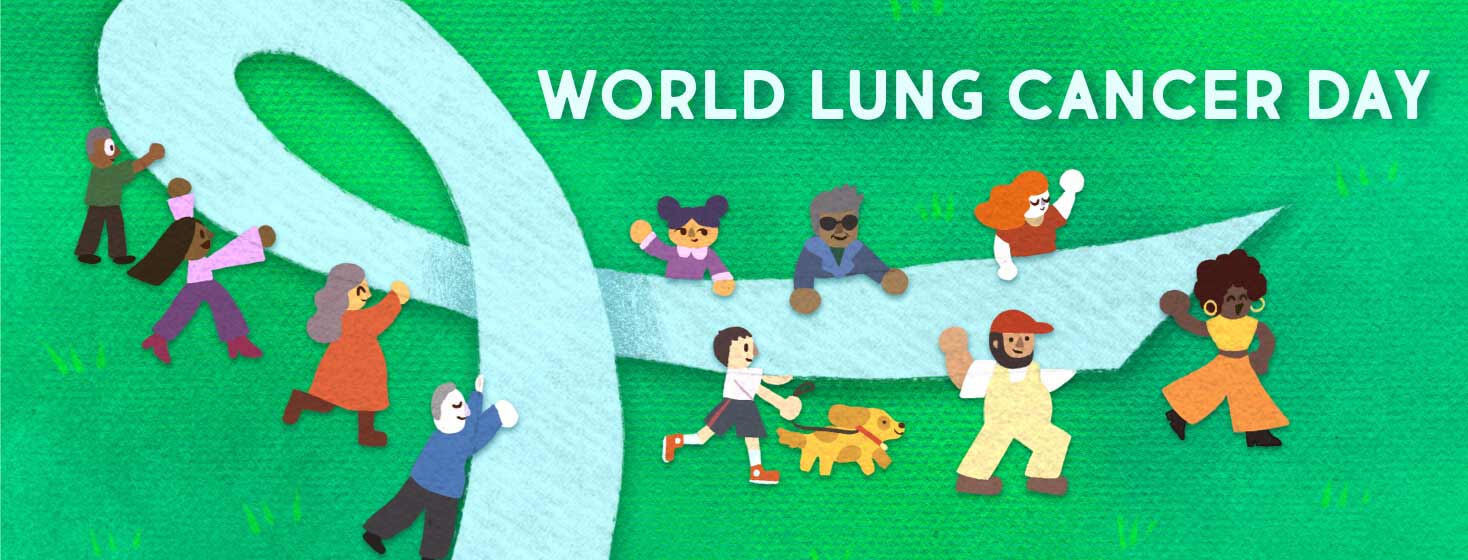5 Things About Lung Cancer For World Lung Cancer Day
World Lung Cancer Day is August 1. I have compiled a list of things that I have learned after being diagnosed with stage IV lung cancer at 30.
1) Let's talk about stigma
Lung cancer is stigmatized. If you look up lists of diseases that have a stigma associated with them, lung cancer is always included. When I was younger, I honestly believed that if I didn’t smoke I would be fine and I would not get lung cancer. I learned this the hard way when I was diagnosed on April 11th, 2014. This way of thinking hurts all of us, those of us diagnosed and those of us will eventually be diagnosed because it has stalled new treatment options for many years.
The chance that a man will develop lung cancer in his lifetime is about 1 in 15; for a woman, the risk is about 1 in 17.1 The idea that only people who have smoked get lung cancer impacts the amount of research done, it directly affects the amount of funding for more treatments.
2) Young people can be diagnosed with lung cancer
It is rare but lung cancer can happen in children. Lung cancer typically is diagnosed at an average age of 70.1 As mentioned, I was diagnosed at a much earlier age than average. However, I have also learned that lung cancer can be found in children.
The signs of lung cancer in children are typically the same as those found in adults, a lingering cough, shortness of breath, wheezing or chest pains, and significant weight loss. A child can also experience a metastasis to the lung from a different primary cancer.
3) Our higher risk for blood clots or pulmonary embolisms
Lung cancer survivors are at a higher risk of developing a blood clot or pulmonary embolism. I have been on a blood thinner since I was diagnosed. Part of the reason they found the tumor in my lung was that I also had a pulmonary embolism in my other lung. I have had multiple ultrasounds of my legs and arms over the past few years just to make sure that I did not have blood clots develop. The signs for blood clots include sore spots on the legs or arms, a warm or tingly sensation, shortness of breath, and sometimes a red discoloration on the skin.
As mentioned, I had a pulmonary embolism and they found mine via a chest CT scan. They knew to do a scan because I had a high d-dimer level when blood was drawn. There are a few options for blood thinners if you find that you need one.
4) Lung cancer is more than a physical challenge
A lung cancer diagnosis can affect everyone in the family. This includes emotionally, physically, and mentally. When I was diagnosed my family rallied around me and I was never in the hospital alone. Jobs were put on hold; money was being pulled and plans were being made to figure out how we could beat this unfortunate monster that had made its way into our lives. My nephew was born after I was diagnosed so he does not know of pre-cancer auntie.
5) New treatments bring a promising future
Despite lack of funding, treatments are being developed more than ever for lung cancer. In just the 7 years that I have been in this community, I have seen numerous treatments be developed. I have even helped with the development of two of those drugs as I participated in two clinical trials.
TKIs for ALK lung cancer and EGFR lung cancer have helped extend many of our lives. Recently, there has been a promising advancement in the treatment for KRAS mutated lung cancer. Immunotherapy is hot in those who do not have a driving mutation. There have also been significant developments in the treatment of small-cell lung cancer.
Share what you've learned
What is something that you learned about lung cancer that you did not know before you were diagnosed? I would love to hear your thoughts or stories in the comments.

Join the conversation